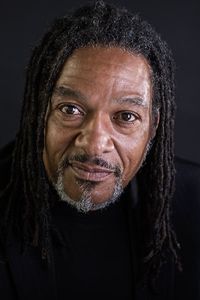James Baylis, the tenth of fourteen siblings, emerged into the world as the offspring of Elmer and Clara Baylis, in the charming town of Harrow, situated in the province of Ontario, Canada.
James' paternal figure was a multifaceted individual, boasting impressive skills as a seasoned hunter, trapper, and baseball enthusiast. This versatile individual later transitioned into the corporate world, securing employment at the Ford Motor Company's foundry in Windsor, Ontario, where he was responsible for pouring engine blocks for the iconic 351 and 352 models. Meanwhile, James' maternal figure, Clara, was a gifted vocalist with a powerful voice, renowned for her soulful gospel singing talents. Her performances in churches throughout Detroit played a pivotal role in the evolution of the Motown sound, with her sister Vera providing accompaniment on the piano.
James and his siblings embarked on a remarkable journey, harmonizing their voices in a multitude of churches under the astute guidance of their mother, whose unwavering dedication and expertise played a pivotal role in shaping their collective musical talents. As fate would have it, a few of James' siblings went on to achieve great success in the music industry, signing with prominent record labels and leaving an indelible mark on the world of music.
James's formative years were shaped by the rich cultural heritage of his grandmother, who regaled him with enchanting bedtime stories that delved into the untold tales of African North American history, providing a unique perspective on the world.
As a young boy, James's educational journey began in the 1960s, when he attended the Colchester South Segregated School System, a institution that was still deeply entrenched in the discriminatory practices of the time.
However, James's life was forever changed in 1966, when the Canadian parliament courageously repealed the legislation that had enforced segregation, paving the way for a new era of inclusivity and diversity.
This pivotal moment marked the beginning of a new chapter in James's life, as he was introduced to a broader range of friends and acquaintances, each with their own unique experiences and perspectives.
Unfortunately, this newfound diversity also brought with it the harsh realities of racism, which James would soon learn to navigate as he grew older and more aware of the complexities of the world around him.
James' earliest recollection of racism was a profoundly unsettling encounter that occurred during a drama class audition, where he was harshly informed that he was not suitable for the coveted role of Oliver due to his racial background. The piercing words, "I'm sorry, JAMES, but Oliver isn't Black," still linger in his memory, a poignant reminder of the deep-seated biases that continue to plague our society.
Following this disheartening experience, James sought solace in the wisdom of his grandmother, a woman who had witnessed firsthand the slow but steady march towards progress. With a mix of empathy and realism, she shared with him her thoughts on the current state of affairs, cautioning him that, despite his exceptional abilities, societal acceptance was not yet within reach. Nevertheless, she offered a glimmer of hope, suggesting that as times changed, attitudes would eventually shift, and James would find himself more widely accepted.
James tenaciously clung to the profound and life-affirming words that had been imparted to him, and as a direct result, he continued to embody the essence of his cherished bedtime stories. He made the bold decision to relocate to the picturesque town of High River, situated in the heart of Alberta, Canada, where he would go on to pursue a life of adventure and purpose. James's journey took a dramatic turn when he traded in his boots for a cowboy hat, embracing the rugged lifestyle of a true cowpoke. As his experiences as a cowboy deepened, he felt an insatiable desire to make a positive impact on the lives of at-risk youth. James's passion for helping others led him to a new role, where he worked tirelessly to mentor and guide these young individuals, utilizing the valuable lessons he had learned from his grandmother. Her teachings, which had been passed down through generations, had a profound impact on James's life, and he went on to become a skilled practitioner of practical herbalism. With his newfound expertise, James founded a successful business as a commercial wildcrafter, harvesting rare and precious herbs from the great outdoors. His entrepreneurial spirit didn't stop there, as he also established himself as a respected wilderness outfitter, leading expeditions and sharing his love for the natural world with others.
James, despite having achieved significant success, continued to harbor a deep-seated desire to tread the boards of the stage. It was the year 1997 that brought him a life-changing opportunity, as Ron Allen, a prominent figure in the 1950s and 1960s Dead Poets, offered him the pivotal role of Tyrome Smith in the production of "The Aboriginal Treatment Center". This marked James' inaugural foray into the world of film, and it was Chris Haddock who provided him with his first taste of cinematic success.
James' most outstanding attribute is undoubtedly his remarkable voice, which has undergone a profound transformation and has subsequently amplified his exceptional verbal storytelling abilities, allowing him to convey his thoughts and ideas with unparalleled clarity and conviction.























